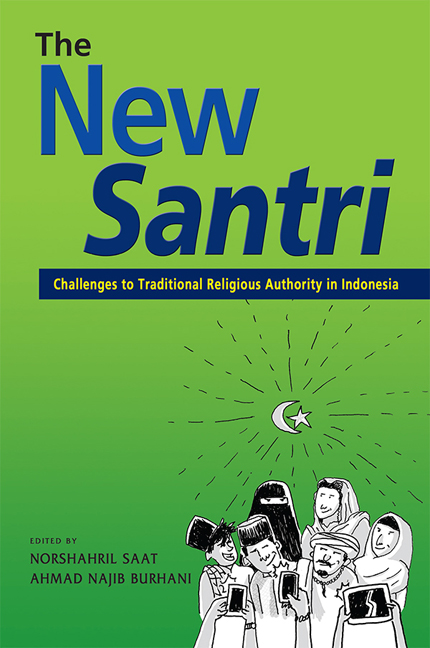15 - Santri, Cinema and the Exploratory Form of Authority in Traditionalist Muslim Indonesia
Published online by Cambridge University Press: 24 November 2020
Summary
Introduction
The common stereotype that depicts Islam as “an authoritarian religion” is a mistake, for it resulted from a partial understanding about the nature of religious authority in Islamic societies (Berkey 2010, p. 105). While the construction of religious authority in Islam consists of varying degrees of textuality, discursive methods and personified knowledge (Mandaville 2007), the stronghold of Islamic religious authority since the formative period of Islam has never been singular (Crone and Hinds 1986). It is in fact always contingent, plural and relational (Kramer and Schmidtke 2006, p. 2). This is because the normative texts of Islam are mute until they are interpreted (textuality), and thus dealing with them requires expert knowledge that is premised on a certain level of literacy and requisite training (discursive methods). This requirement has in turn pluralized Islamic authority into diverse categories of classified producers and transmitters of that knowledge, such as the religious scholars, the Sufi leaders, and the political figures (personified knowledge). Moreover, since Islam has no church-like institution and ordained clergy, what counts as authoritative knowledge of Islam has always been contested among diverse epistemological, social, cultural, and political orders.
In the modern times, the traditional construction of Islamic religious authority has seen a vigorous process of fragmentation, triggered by the advent of new media technologies and the rise of mass education in the Muslim societies, among other causes. This fragmentation in Islamic authority is marked by the emergence of new types of Muslim actors who do not necessarily have “formal” religious qualifications, but have vigorously created alternative sites of learning to speak of and for Islam (Eickelman and Anderson 1999), that subvert, break with, and even attack the traditional structures of scholarship, ideologies and authorities in the Muslim world (Devji 2005). For example, in the case of Indonesia today we might see the rise of popular Islam, which I define here as the daily understanding, articulation, and practice of what counts as Islam by a large number of ordinary Muslims in everyday lived circumstances, largely mediated through practices of popular culture, the global market economy, and modern lifestyles.
- Type
- Chapter
- Information
- The New SantriChallenges to Traditional Religious Authority in Indonesia, pp. 278 - 295Publisher: ISEAS–Yusof Ishak InstitutePrint publication year: 2020



